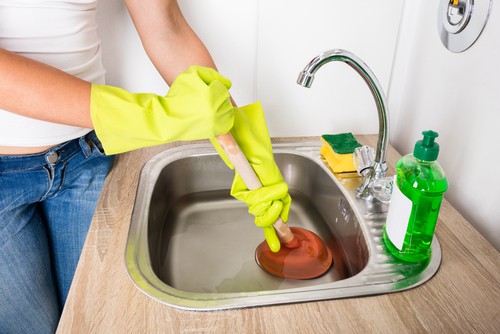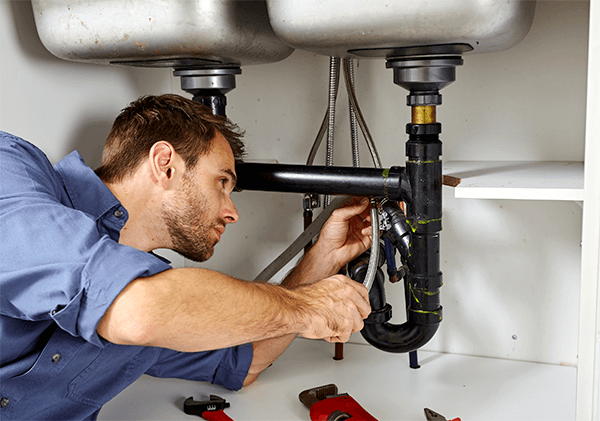Immediate Tips for Critical Situations Until A Plumber Arrives
Immediate Tips for Critical Situations Until A Plumber Arrives
Blog Article
They are making a number of great pointers regarding Expert Tips for Managing a Plumbing Emergency Until Help Arrives as a whole in the content further down.

Pipes emergency situations can strike any time, creating stress and potential damage to your home. Whether it's a burst pipe, a clogged drain, or a leaky faucet, knowing how to manage the situation until a professional plumbing arrives can save you from further complications. This article provides important emergency plumbing tips to help you mitigate damages and reclaim control throughout a plumbing dilemma.
Turn Off the Water Supply
The initial step in any plumbing emergency is to shut down the water system. For local problems, such as a leaking faucet or toilet, switch off the shutoff near the fixture. In the case of a significant leakage or ruptured pipe, locate your home's main water shut-off shutoff and turn it off right away. Knowing the location of these valves beforehand can conserve valuable time throughout an emergency situation.
Turn off Your Hot Water Heater
In specific emergencies, such as a burst pipeline, it's smart to shut off your water heater. This protects against getting too hot or damage to the unit when water quits moving. Shut off the power supply to the water heater (electrical or gas) and let it cool down to stay clear of prospective hazards.
Momentarily Stop a Burst Pipeline
A ruptured pipe can bring about considerable water damage in mins. To alleviate the problem:
Call an expert plumber promptly to deal with the trouble permanently.
Have an Emergency Situation Plumbing Set
Prepare a basic pipes emergency set to take care of minor problems properly. Your package ought to consist of:
Having these tools handy can make a significant difference in your capacity to take care of emergencies.
Unclog Drains Pipes Securely.
A clogged up drain can be an aggravating and untidy problem. Below's how to tackle it:.
If these techniques do not function, stay clear of making use of excessive force, as it may intensify the obstruction.
Handle Overflowing Toilets.
An overflowing bathroom can trigger instant mayhem. Right here's what you must do:.
Address Small Leakages with Momentary Repairs.
Little leaks can rapidly become substantial troubles if left untreated. Utilize these short-term fixes till expert assistance arrives:.
While these fixes aren't long-term, they can help decrease water loss and damage.
Take Care Of Frozen Water Lines Carefully.
In chillier climates, icy pipes are an usual emergency situation. If you think a frozen pipeline:.
Know When to Call a Professional.
While quick fixes can aid briefly, particular pipes concerns require prompt professional interest. Call a plumber if:.
Without delay getting in touch with a specialist guarantees the concern is solved correctly and avoids more problems.
Stop More Damage.
Taking quick activity to minimize damages can conserve you time and money over time. Below's how:.
Verdict.
Plumbing emergencies can be overwhelming, however with the ideal expertise and devices, you can manage the circumstance efficiently up until assistance shows up. By shutting off the water system, attending to little leaks, and using short-term repairs, you can reduce damage and keep your home safe. Remember, these suggestions are short-term services; always consult a qualified plumbing professional to handle the origin of the trouble. Prep work and fast reasoning are your finest allies in any type of plumbing emergency.
8 Helpful Tips for Managing Plumbing Emergencies at Home
If your plumbing system hasn’t failed once, wait for it because almost everyone has a story to tell. Sometimes, it could be simple emergencies such as a leaking pipe, a blocked cistern, or even a big burst pipe. In situations like this, you need to have some handy tips to save you some money and from possible damages.
Take care of minor issues early.
Sometimes, you could have avoided an emergency by taking proactive measures while it was still early. Some major plumbing emergencies can be a result of an ignored minor issue. We recommend that you have items like plumbing tapes and other related items. A plumbing tape can allow you to manage minor leaks before the plumber arrives.
Cut off the water supply.
This tip is essential in almost any type of leakage problem. For problems like minor leakages in the toilet or kitchen, turn off the supply that takes water to the affected pipes. If the leakage is a major pipe, you must shut off the supply valve to the entire building. This will help you avoid flooding your home and neighbors if you share a flat.
Know your plumbing system
Folks typically move into a new apartment without understanding the water supply around the building. This can prove disastrous if a water emergency arises and the plumber is far away. The previous tip will prove useless if you don’t practice this one. More importantly, know where your water shut-off valve is located – you’ll need that knowledge to prevent potential home floods.
Have some common handy tools
There are lots of plumbing emergencies that you can handle without hiring a plumber. That’s why you must keep some tools available always. Some tools that you can use to fix simple plumbing emergencies easily include plumbing tapes, screwdrivers, thread seal tapes, plungers, pliers, tape measures, and rubber gloves.
Insulate your pipes from cold
You’ll save yourself from many plumbing expenses if you protect your water pipes from the cold. This is because of the harmful effects that cold weather can have on your pipes. During winter, your pipes can burst from being overly expected to freezing temperatures. So, make sure insulators are there to keep the pipes working correctly.
Avoid practices that will clog your toilet.
Many people indulge in practices that can damage the plumbing system of the entire building. One of these is when they use their toilet to dispose-off garbage. They flush all kinds of things, such as paper towels, bandages, hairs, female sanitary products, etc., down the toilet. This will block your toilet in the long run, incurring unnecessary expenditures. Dump such waste in the trash instead.
Check your dials regularly.
Sometimes, there could be leakages in your home without noticing them in time. So, constantly monitor your water meter dial. If the dial is reading when there is nobody using water, this is an indicator that there is leaking. Check for leaks immediately. Call a plumber as soon as possible if you can’t find any.
https://www.constructionplacements.com/8-helpful-tips-for-managing-plumbing-emergencies-at-home/

We had been brought to that article about What to Do While Waiting for an Emergency Plumber from an acquaintance on another web property. If you liked our article plz make sure you remember to share it. I truly appreciate reading our article about Expert Tips for Emergency Plumbing Repairs.
Call Report this page